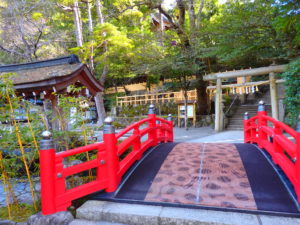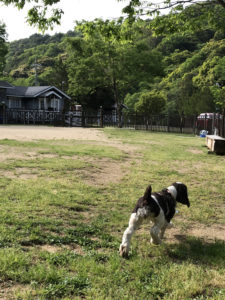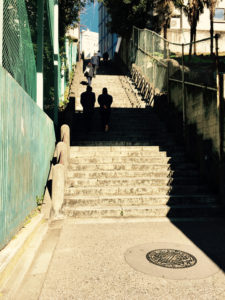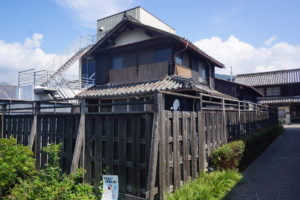Understanding Unbuildable Properties
(再建築不可物件) in Japan
Unbuildable properties, known as “Saikenchiku Fuka Bukken” (再建築不可物件) in Japan,
refer to parcels of land where new construction is legally prohibited.
This restriction remains in place even if there is an existing structure on the land—once that structure is demolished,
no new building can be built.
These properties are often located in areas where modern building codes and regulations have evolved, making older properties
non-compliant with current standards.
Why Are Unbuildable Properties Priced Lower?
Unbuildable properties are generally priced lower due to the significant limitations on their development potential.
Since new construction is not allowed, the future usability of the property is greatly restricted,
directly impacting its market value.

OLYMPUS DIGITAL CAMERA
Additionally, these properties often face other challenges, such as inadequate road access or being situated
in zones with strict regulations, further diminishing their appeal.
A common scenario involves properties that do not meet the road access requirements outlined
in Japan’s Building Standards Act (建築基準法).
In Japan, the Building Standards Act mandates that the site of any building must have at least 2 meters of frontage on a road
defined under Article 42 of the Act, which generally refers to roads with a minimum width of 4 meters.
This requirement is known as the ‘road access obligation’ (接道義務) under Article 43 of the Building Standards Act.
Therefore, even if a property has more than 2 meters of frontage, it would be considered illegal if the road is only 3 meters wide.
Older buildings, which do not comply with current building standards
(a condition known as ‘existing non-conformance’ or Kison-Futekikaku, 既存不適格),
often have frontage on roads less than 4 meters wide.
However, when reconstructing such buildings, a setback is required to ensure the road width is increased to at least 4 meters.
Properties that fail to meet this criterion cannot be rebuilt.
While existing structures on such land may still be usable, the inability to redevelop or
reconstruct significantly lowers their value.
Advantages of Unbuildable Properties
Despite their limitations, unbuildable properties offer certain advantages that can be appealing to investors:
・Lower Purchase Cost:
The most apparent benefit is the reduced acquisition cost.
These properties are often significantly cheaper than buildable lots, making them accessible to investors with smaller budgets.
・Reduced Property Taxes:
The value of unbuildable properties is typically lower, which can result in reduced property taxes,
making them more affordable to maintain over time.
・Strategic Location:
Some unbuildable properties are located in highly desirable areas.
The combination of a prime location and a lower purchase price can make these properties attractive for specific uses.
How to Effectively Utilize Unbuildable Properties
Even with the restrictions they impose, unbuildable properties can still be utilized in various ways to maximize their value:
1. Convert to a Bicycle Parking Lot
While unbuildable properties may not qualify for car parking lots due to insufficient road access,
they can be converted into bicycle or scooter parking.
If located near a train station, large commercial facilities, or residential complexes, this can be a profitable use.
2. Renovate and Reside
Although new construction is prohibited, some unbuildable properties can still undergo renovations.
Specifically, if the property qualifies as a “Type 4 Building” under Japanese law—typically wooden buildings with no more
than two stories and a floor area under 500 square meters—it can be renovated and used as a residence.
This allows for living in or renting out the property while enjoying a lower initial investment.
3. Make the Property Rebuildable
If you are determined to build on the property, one solution is to acquire adjacent land that meets road access requirements.
By combining the unbuildable property with a neighboring lot that has proper road access,
you can make the entire parcel rebuildable, thereby unlocking its full potential.

Risks and Challenges for Foreign Buyers
・Depreciation Over Time
Unbuildable properties tend to depreciate more quickly than buildable ones.
As the existing structure ages, its usability and market appeal decrease, making it harder to sell or maintain.
Over time, the costs associated with ownership may outweigh the benefits, especially if the property becomes uninhabitable.
・Legal and Regulatory Complexities
For foreign buyers, navigating Japan’s legal landscape can be particularly challenging.
The complexities of zoning laws, building codes, and local regulations vary significantly from one area to another.
Without expert guidance, foreign investors may struggle to fully understand these issues,
increasing the risk of purchasing a problematic property.
・Financing Challenges
Securing financing for an unbuildable property is, in reality, nearly impossible.
Financial institutions are extremely cautious about lending against properties with limited development potential,
and as a result, it is rare for banks to offer loans for such properties.
Therefore, buyers are generally limited to investors who can purchase the property with cash.
Investment Considerations
Pros:
While unbuildable properties may appear attractive due to their lower prices, they come with significant drawbacks
that must be carefully considered:
・Lower Initial Cost:
The reduced purchase price makes these properties more accessible to investors
with smaller budgets, potentially allowing entry into desirable markets that would otherwise be out of reach.
・Short-Term Usage:
If the existing structure is in good condition, the property may be usable for a period, either as a residence or a rental.
However, this is typically a temporary solution, as the building will continue to age.

Cons:
・Limited Resale Value:
Unbuildable properties are difficult to sell, with a limited pool of potential buyers.
The lack of redevelopment potential means these properties often fail to appreciate in value and may become
financial burdens over time.
・High Maintenance Costs:
Older structures require ongoing maintenance, which can be costly.
Since the property cannot be rebuilt, owners must continually invest in repairs, potentially eroding any financial benefits
from the initial low purchase price.
・Usage Restrictions:
The inability to rebuild or significantly alter the property limits its utility. Investors looking to modernize or
expand a property will find these restrictions particularly frustrating.
How to Identify Unbuildable Properties
Identifying unbuildable properties requires careful due diligence.
Key steps include:
Check Road Access:
Insufficient road access is a common reason a property is classified as unbuildable.
In Japan, properties must have at least 2 meters of frontage on a public road to qualify for new construction.
Buyers should verify this requirement with a local real estate professional or government office.
Understand Zoning and Building Regulations:
Different municipalities have different zoning laws and building regulations.
Buyers should familiarize themselves with these rules, particularly in relation to the property they are considering.
This may include restrictions on building height, usage, and proximity to other structures.
Conduct a Thorough Property Inspection:
A professional inspection can uncover potential issues that may not be immediately apparent,
including structural problems, non-compliance with building codes,
and other factors that could classify the property as unbuildable.

Legal and Financial Implications
Understanding the legal and financial implications of owning an unbuildable property is essential for making an informed decision:
Legal Restrictions:
Unbuildable properties are subject to legal restrictions that prevent new construction.
These restrictions can include inadequate road access, proximity to protected areas,
or non-compliance with current building codes.
Fully understanding these limitations before purchasing is crucial, as they can significantly impact the property’s
long-term value and usability.
Financing Challenges:
As previously mentioned, securing a loan for an unbuildable property is nearly impossible.
Buyers should plan to finance the purchase with cash, as traditional financing options are unlikely to be available.
Tax Considerations:
The tax implications of owning an unbuildable property can vary.
While the property’s lower value might result in lower property taxes, owners should be aware of potential tax liabilities
associated with maintaining or selling the property.
Consulting with a tax professional who understands Japanese real estate is advisable.
Case Studies
Case studies can provide valuable insights into the potential pitfalls and successes of
investing in unbuildable properties:
Case Study 1:
A foreign investor purchased an unbuildable property in a desirable Tokyo neighborhood at a significantly reduced price.
The investor initially planned to rent out the property for short-term stays, capitalizing on the prime location.
However, a severe earthquake caused the building to collapse, and due to the unbuildable status of the property,
the investor was unable to reconstruct a new building on the land.
With no other options, the investor converted the land into a parking lot, which provided minimal income compared to the original plan.
Despite efforts to sell the property, the lack of development potential made it difficult to find a buyer,
and the investor ultimately faced significant financial loss as the property remained unsold.
Case Study 2:
Another investor bought an unbuildable property intending to use it as a long-term residence.
The property was well-maintained, allowing the investor to live comfortably for several years.
However, when it came time to sell, the lack of rebuild potential made finding a buyer difficult,
resulting in a sale at a much lower price than comparable properties in the area.
These case studies highlight the importance of careful planning and realistic expectations when purchasing unbuildable properties.

Conclusion
Unbuildable properties in Japan present a unique opportunity for investors,
particularly those looking to enter the real estate market at a more accessible price point.
These properties can be especially attractive due to their lower initial costs.
However, they also carry significant risks and challenges, particularly for foreign investors who may not
be fully familiar with the intricacies of Japanese real estate laws and regulations.
For anyone considering an investment in an unbuildable property, it is crucial to conduct thorough research and work
closely with experienced professionals who can guide you through the process.
Understanding the long-term implications is essential—while the lower purchase price may initially seem appealing,
you must carefully weigh potential issues such as depreciation, high maintenance costs, and the limited resale value
that often accompany these properties.
Additionally, if your plan is to renovate the existing structure and use it as your residence,
the risks associated with unbuildable properties are somewhat mitigated.
However, you should still be mindful of the potential difficulties in reselling the property in the future.
On the other hand, if you are considering the property as an investment for rental purposes,
tenants typically do not concern themselves with whether a property is unbuildable.
This may make the property easier to manage during your ownership period,
but the liquidity risk at the time of resale remains a significant consideration.
In Japan, it is essential to not only thoroughly examine a property’s current condition
but also to anticipate potential risks at the time of exit.
Approaching the purchase with a clear exit strategy in mind is crucial.
By understanding the risks and planning accordingly, you can make a more informed decision
when considering unbuildable properties.
Investing in Japanese real estate, particularly in unbuildable properties, requires careful thought
and planning. If you are interested in exploring this unique market opportunity, we encourage you
to first contact us to discuss how we can assist you
in finding the right property that aligns with your investment goals.

Toshihiko Yamamoto – Founder and Lead Broker, Yamamoto Property Advisory
Toshihiko Yamamoto is the founder and principal broker of Yamamoto Property Advisory,
a distinguished real estate brokerage in Tokyo that specializes in luxury residential and investment properties for an international clientele.
His firm caters to discerning investors seeking premier properties for personal use and income-generating whole buildings for investment purposes.
A licensed real estate broker in Japan, Mr. Yamamoto holds an MBA from Bond University in Australia
and a Certified Commercial Investment Member (CCIM) designation from the CCIM Institute in the United States.
His extensive international experience, having lived abroad in Australia and the United Kingdom, equips him
with a nuanced understanding of global real estate trends and the unique needs of foreign investors.
With over two decades of experience in international business, Mr. Yamamoto has successfully conducted business with clients from more than 20 countries.
As a seasoned property investor himself, he provides informed guidance to his clients as they navigate the intricacies
of the Japanese real estate market to secure optimal investments.
Discover more in his book, “The Savvy Foreign Investor’s Guide to Japanese Properties: How to Expertly Buy, Manage,
and Sell Real Estate in Japan,” available on Amazon, iBooks, and Google Play.
Connect with us through social media on Instagram, WhatsApp, and LINE for further information and expert assistance.






